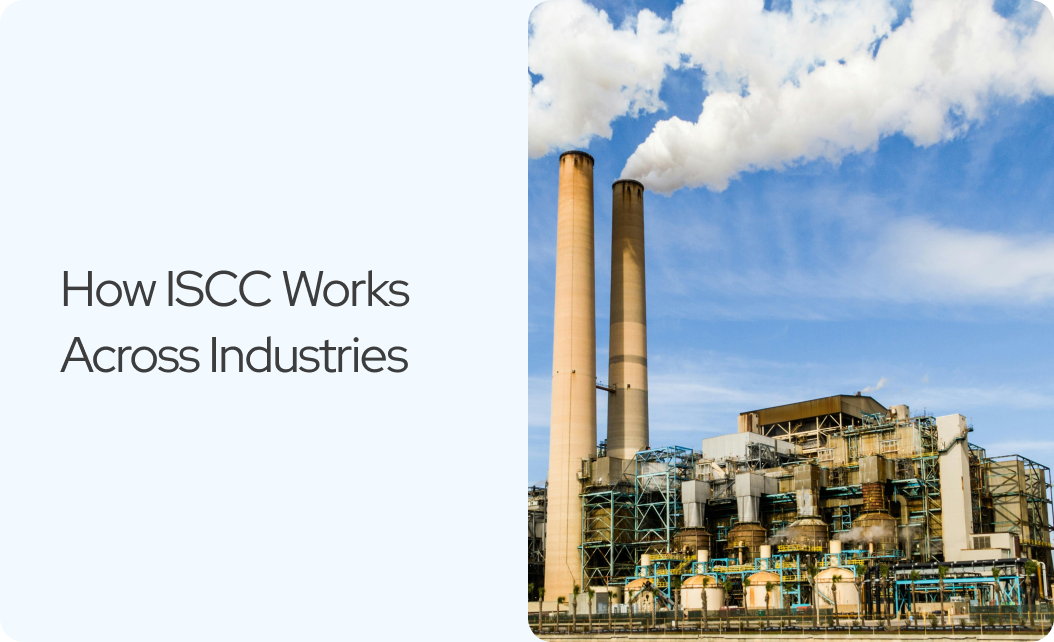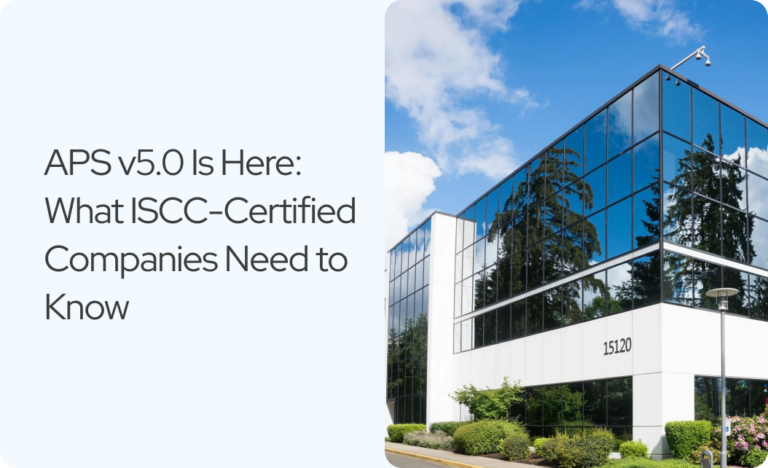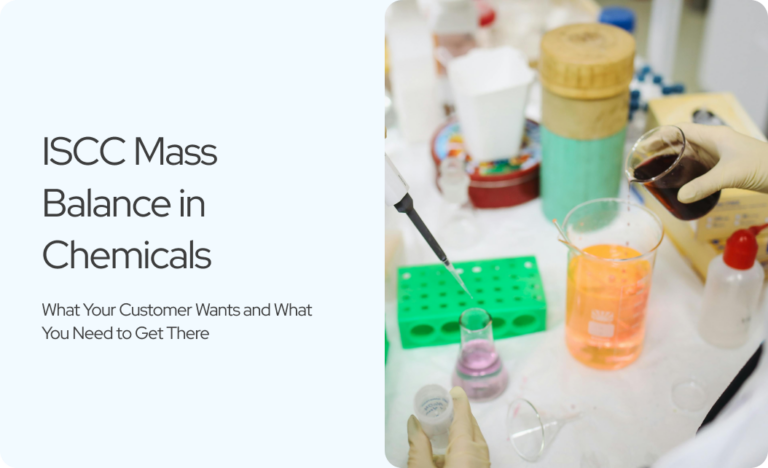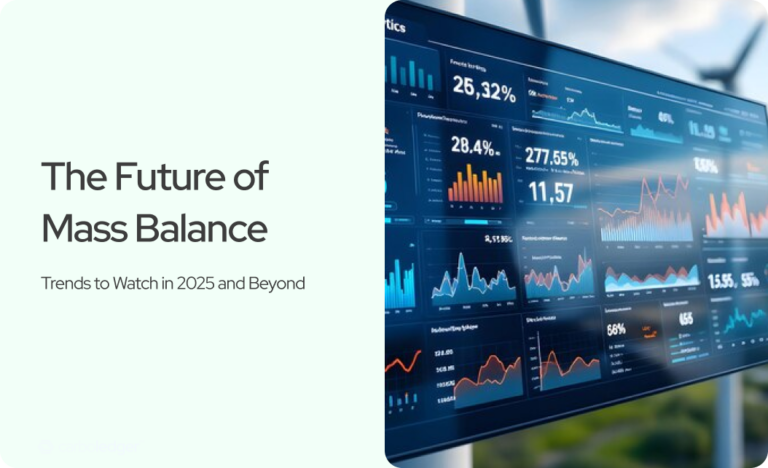How ISCC Works Across Industries
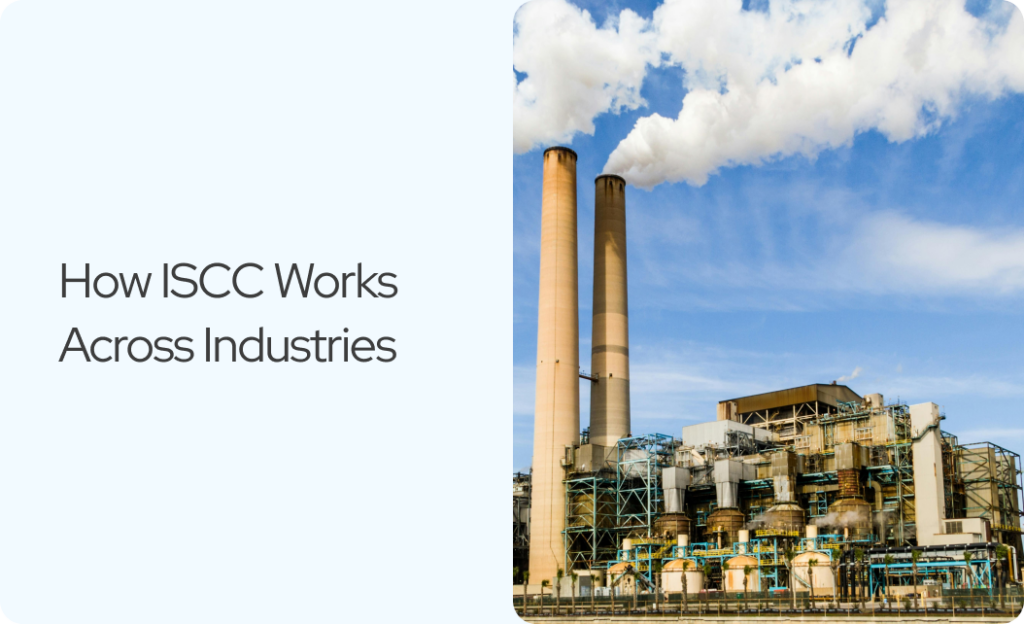
Unlocking Profit, Circularity, and Compliance at Scale
ISCC certification isn’t just for one type of business. From chemicals to agriculture to manufacturing, companies across industries are using it to drive sustainable innovation, access premium markets, and unlock real financial returns.
This guide explores how ISCC works in key sectors, and how it turns sustainability from a cost into a business advantage.
Manufacturing and Industrial Use
Manufacturers, especially in packaging, are under pressure to reduce waste and carbon emissions while proving sustainability to B2B buyers. ISCC helps solve both.
By certifying recycled and circular materials, manufacturers can replace virgin inputs with certified alternatives. This lowers emissions, improves supply chain transparency, and qualifies products for premium pricing.
The result? Greater competitiveness and better margins with the same infrastructure.
Chemical and Petrochemical Sectors
The chemical industry is at the heart of circular economy innovation. With ISCC, producers can certify bio-based or chemically recycled feedstocks to replace fossil-based raw materials.
Plastic waste can be broken down and reintroduced as certified building blocks for new products. That’s not just recycling, it’s industrial transformation.
For many, this opens access to closed-loop supply chains with top-tier buyers that demand verifiable traceability and low-carbon inputs.
Agriculture and Food Processing
Farmers, food processors, and agri-businesses are increasingly adopting ISCC to create value from waste.
Organic byproducts, like crop residue or food waste can become certified input for feed, biogas, or biochemical production. This turns discarded material into an income stream.
By closing resource loops, ISCC supports both climate goals and farm-level profitability.
What Are the Financial Gains?
1. Cutting Costs
ISCC-certified circular processes often save money. Companies report up to 30 percent reduction in material and waste handling costs within the first year.
And the energy savings are dramatic. For example, using recycled aluminum uses 95 percent less energy than producing it from scratch.
2. Accessing Premium Markets
Certified products don’t just cost less, they also sell for more.
In many industries, buyers pay 15 to 35 percent premiums for ISCC-certified materials. Some markets, like sustainable aviation fuels or bio-based chemicals, offer even higher pricing tied to certification status.
This gives certified businesses pricing power and negotiating leverage that uncertified suppliers lack.
3. Reducing Risk
ISCC certification is an effective insurance policy against regulatory disruption.
As governments introduce stricter rules on waste, emissions, and sourcing, ISCC helps companies stay compliant and avoid costly penalties. Certification also strengthens brand trust, making your business a safer bet for long-term buyers and investors.
Getting Help with Implementation: The Role of Carboledger
ISCC certification can feel complex but it doesn’t have to be.
Carboledger’s digital platform streamlines the entire process. It helps track certified material flow, maintain audit-ready documentation, and flag compliance risks in real time. The software also integrates with your existing systems, giving you a clear view of both sustainability and financial performance.
How to Start Profiting from Circularity
Start with a simple question: What waste do you already produce that someone else would pay a premium for?
A waste audit can uncover recyclable or bio-based materials that qualify for certification. Match these to market demand, whether it’s recycled plastic, used cooking oil, or agri-residues, and you’ve got a new revenue stream.
According to market analysis by Precedence Research, the global circular economy was valued at approximately USD 556 billion in 2023 and is projected to reach USD 1.32 trillion by 2030, growing at a CAGR of 13.2% during the forecast period.
Final Thoughts
ISCC isn’t just about doing good, it’s about doing well. Whether you’re making packaging, processing crops, or producing chemicals, certification can lower your costs, expand your markets, and future-proof your supply chain.
Sustainability is no longer an afterthought. It’s a business strategy. And ISCC is one of the smartest tools to execute it.
Disclaimer:
Carboledger Inc. is an independent software provider. References to ISCC or any other certification schemes in this article are made solely for informational and educational purposes. Carboledger is not affiliated with, certified by, or endorsed by ISCC System GmbH or any certification body. The content does not constitute certification advice or official guidance.

